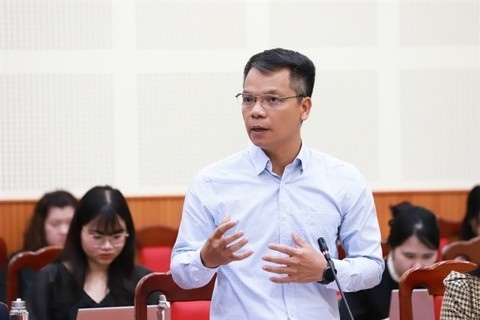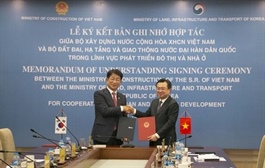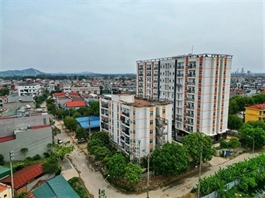Land Law 2024 set to revolutionise agricultural real estate market
Land Law 2024 set to revolutionise agricultural real estate market
The Land Law 2024, effective from August 1, will bring significant and transformative legal changes to the agricultural real estate market. The changes aim to alleviate the difficulties businesses face in accumulating agricultural land and to unlock resources in the sector. Phạm Thanh Tuấn, a real estate legal expert from the Hà Nội Bar Association spoke to Tin tức (News) newspaper about what is coming.

Phạm Thanh Tuấn, a real estate legal expert from the Hà Nội Bar Association. — VNA/VNS Photo |
Many businesses are still reluctant to invest in agricultural real estate projects, especially in high-tech agriculture, citing difficulties in accessing land. Could you please provide further insights?
Investing in agriculture indeed involves numerous risks, such as dependence on weather and slow capital recovery. However, beyond economic reasons, the challenges in accessing land funds discourage businesses from investing in this sector. Unlike other fields, agricultural real estate investment requires a large concentration of agricultural land to build raw material zones and livestock facilities. Obtaining production land and concentrated land funds remains a complex issue.
The Land Law 2013 stipulates that only projects for concentrated agricultural, forestry and fishery production forming a supply chain qualify for state land reclamation. When the state does not reclaim land, businesses must negotiate directly with land-using households.
In northern provinces, agricultural land is currently fragmented and dispersed, making it difficult for businesses to accumulate enough land area for project scales. This requires negotiating with many people at different price levels.
Clearly, these difficulties in land accumulation are barriers that deter businesses from investing in agriculture.
How will the upcoming Land Law 2024 address these existing issues?
Resolution No. 18-NQ/TW mandates expanding the subjects and limits for transferring agricultural land use rights, tailored to the characteristics and conditions of each region and locality. This includes provisions for job changes, employment and labour in rural areas, as well as regulations on agricultural land combined with commercial and service activities. This serves as the guiding principle for the Land Law 2024, to resolve legal bottlenecks and unlock resources for the agricultural real estate sector.
One notable change is the increase in the maximum limit for individuals transferring agricultural land use rights.
Article 177 of the Land Law 2024 raises the limit for the transfer of agricultural land for households and individuals to no more than 15 times the agricultural land allocation limit, up from 10 times under the Land Law 2013.
Furthermore, the Land Law 2024 stipulates that individuals not directly engaged in agricultural production are allowed to receive transfers or gifts of rice land use rights, a restriction previously imposed by the Land Law 2013. These new regulations aim to increase opportunities for households and individuals to accumulate land for large-scale agricultural production.
A key change promoting the development of the agricultural real estate sector is the regulation on concentrating agricultural land through methods such as transfer, leasing and cooperative production or accumulating agricultural land through transfers and capital contributions.
Additionally, for the first time, the Land Law 2024 includes provisions for investment projects to construct and operate infrastructure for concentrated breeding, cultivation, production and processing of agricultural, forestry, and aquatic products. This legal framework facilitates the establishment of concentrated infrastructure in agriculture, similar to infrastructure projects in the industrial sector. This model will help businesses easily access 'clean' land for investment and production in agriculture.
The Land Law 2024 is considered to have untied legal constraints, bringing significant positive changes to the agricultural real estate sector in the coming period.
What are the expectations for these new regulations?
The legal changes in the Land Law 2024 align with the current trend of high-tech, large-scale agriculture. These changes will facilitate agricultural development in this new context, enhance economic value and advance Việt Nam's agricultural sector.
The growing trend of combining organic farming with tourism will further optimise land use efficiency and increase the commercial value of the land. This will positively impact the slow-developing agricultural real estate market, bringing new vitality.
Investors are hopeful that the real estate market will shift towards a focus on real value, adopting a long-term investment mindset geared towards maximising and operating land for profit.




























